|
Books Should Be Free Loyal Books Free Public Domain Audiobooks & eBook Downloads |
|
|
Books Should Be Free Loyal Books Free Public Domain Audiobooks & eBook Downloads |
|
Poetry |
|---|
|
Book type:
Sort by:
View by:
|
By: James Joyce (1882-1941) | |
|---|---|
 Chamber Music
Chamber Music
Chamber Music is a collection of poems by James Joyce, first published in May of 1907. The collection originally comprised thirty-four love poems, but two further poems were added before publication (”All day I hear the noise of waters” and “I hear an army charging upon the land”). Although the poems did not sell well, they received some critical acclaim. Ezra Pound admired the “delicate temperament” of these early poems, while Yeats described “I hear an army charging upon the land” as “a technical and emotional masterpiece”... | |
By: George MacDonald (1824-1905) | |
|---|---|
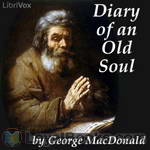 Diary of an Old Soul
Diary of an Old Soul
George MacDonald, a Scottish pastor, wrote these short poems, one for each day of the year, to help him with the severer misfortune he was experiencing. The poems are filled with hope and promises of Christ, yet, he also writes about his doubts. These poems are wonderful to listen to for people of any religion. | |
By: Jean de La Fontaine (1621-1695) | |
|---|---|
 Fables in Rhyme for Little Folks
Fables in Rhyme for Little Folks
Several of La Fontaine’s fables, translated into English by W. T. Larned. | |
 Old Man and the Ass
Old Man and the Ass
LibriVox volunteers bring you 8 recordings of The Old Man and the Ass by Jean de La Fontaine. (There was no translator acknowledged in the text.) This was the Weekly Poetry project for July 7, 2013.Jean de La Fontaine was the most famous French fabulist and one of the most widely read French poets of the 17th century. He is known above all for his Fables, which provided a model for subsequent fabulists across Europe and numerous alternative versions in France, and in French regional languages.According to Flaubert, he was the only French poet to understand and master the texture of the French language before Hugo... | |
By: Geoffrey Chaucer (c. 1343-1400) | |
|---|---|
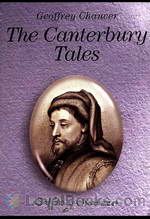 The Canterbury Tales
The Canterbury Tales
Anyone who has ever been on a package tour with a group of strangers who soon become friends, and passed time swapping stories with them, would instantly identify with this timeless classic of English literature. The Canterbury Tales by Geoffrey Chaucer recounts twenty different stories recounted by a diverse group of pilgrims who gather at The Tabard Inn in Southwark, near London, before setting out for the shrine of Thomas Becket in Canterbury. The Host of the inn proposes that they entertain themselves by telling stories along the route and the one who tells the best tale would win a prize – a meal at Bailey's tavern, sponsored by the losers... | |
By: Walt Whitman (1819-1892) | |
|---|---|
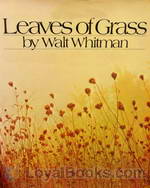 Leaves of Grass
Leaves of Grass
Nearly 160 years after it was first published, Walt Whitman's Leaves of Grass continues to inspire, enthrall and educate generations of readers. This collection of poems serves as a vehicle for Whitman's philosophy, ideals, love of nature and mystical musings and it subsequently became one of the corner stones of American literature. Whitman was inspired to write Leaves of Grass based on Ralph Waldo Emerson's clarion call for a truly American poet who would tell of its glories, virtues and vices... | |
 Specimen Days
Specimen Days
Specimen Days is essentially the great American poet Walt Whitman’s scrap book. It documents most of his life’s adventures, espeically his experience serving as a nurse during the Civil War and travelling around America. | |
 Song of the Broad-Axe - stanza 4
Song of the Broad-Axe - stanza 4
This Weekly Poem is an excerpt from Song of the Broad-axe (4th Stanza) by Walt Whitman, who was an American poet, essayist and journalist. A humanist, he was a part of the transition between transcendentalism and realism, incorporating both views in his works. Whitman is among the most influential poets in the American canon, often called the father of free verse. | |
By: Edith Nesbit (1858-1924) | |
|---|---|
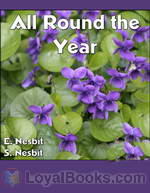 All Round the Year
All Round the Year
A light and whimsical collection of poems by the celebrated children’s author E Nesbit, in collaboration with Saretta Nesbit. | |
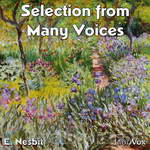 Many Voices (selection from)
Many Voices (selection from)
E. Nesbit (Edith Bland) was a prodigious 19th century children’s writer who produced over 60 books of fiction for children. This book of poems has many elements which would appeal to children but there’s also some exploration of her feelings of love, lust and longing which your average 10 year old would find downright yucky. There are also moments of joy, moments of sugary sweetness and moments of sharp insight in this collection which contains views from many angles. Recurring themes of love, death, gardens and fairies give us a fine insight into the lively imagination of E. Nesbit. Summary by Jim Mowatt. | |
By: Dante Alighieri (1265-1321) | |
|---|---|
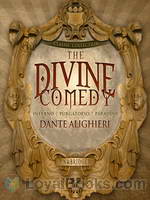 The Divine Comedy
The Divine Comedy
The Divine Comedy (Italian: Commedia, later christened “Divina” by Giovanni Boccaccio), written by Dante Alighieri between 1308 and his death in 1321, is widely considered the central epic poem of Italian literature, the last great work of literature of the Middle Ages and the first great work of the Renaissance. A culmination of the medieval world-view of the afterlife, it establishes the Tuscan dialect in which it is written as the Italian standard, and is seen as one of the greatest works of world literature... | |
By: Aristotle (384-322 BC) | |
|---|---|
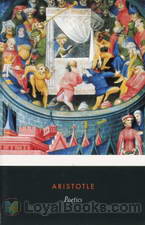 Poetics
Poetics
Aristotle’s Poetics from the 4th century B.C. aims to give a short study of storytelling. It discusses things like unity of plot, reversal of situation, and character in the context of Greek tragedy, comedy and epic poetry. But it still applies today. It is especially popular with screenwriters as seen in many script gurus’ how-to books. | |
By: William Blake (1757-1827) | |
|---|---|
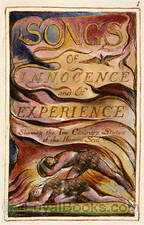 Songs of Innocence and Experience
Songs of Innocence and Experience
“Tiger, tiger, burning bright/In the forests of the night/ What immortal hand or eye/ Could frame thy fearful symmetry?” These often quoted lines are part of The Tiger in William Blake's Songs of Innocence and Experience. In 1789, William Blake released a limited edition of the book. Being a gifted artist, poet and printmaker, he undertook to personally publish all his work himself through a very painstaking but highly artistic process of etching, thereby transferring his drawings and poems individually onto copper plates by hand... | |
 Poems of William Blake
Poems of William Blake
Songs of Innocence and of Experience: Shewing the Two Contrary States of the Human Soul are two books of poetry by the English poet and painter, William Blake. Although Songs of Innocence was first published by itself in 1789, it is believed that Songs of Experience has always been published in conjunction with Innocence since its completion in 1794. Songs of Innocence mainly consists of poems describing the innocence and joy of the natural world, advocating free love and a closer relationship with God, and most famously including Blake’s poem The Lamb... | |
By: George Eliot (1819-1880) | |
|---|---|
 How Lisa Loved the King
How Lisa Loved the King
| |
By: Stephen Crane (1871-1900) | |
|---|---|
 War is Kind (collection)
War is Kind (collection)
Published in 1899, just a year before his death, War Is Kind by Stephen Crane evokes again the dark imagery of war which made his fortune in The Red Badge Of Courage. Unlike that book, this collection leaves the battlefield itself behind to explore the damage war does to people’s hearts and minds. Reeking of dashed hopes, simultaneously sympathetic with the victims of war and cynical about the purposes of war, Crane implicitly criticizes the image of the romantic hero and asks if Love can survive... | |
By: Plato (428-347) | |
|---|---|
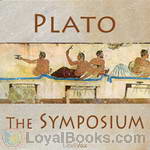 The Symposium
The Symposium
The Symposium (Ancient Greek: Συμπόσιον) is a philosophical book written by Plato sometime after 385 BCE. On one level the book deals with the genealogy, nature and purpose of love, on another level the book deals with the topic of knowledge, specifically how does one know what one knows. The topic of love is taken up in the form of a group of speeches, given by a group of men at a symposium or a wine drinking party at the house of the tragedian Agathon at Athens. Plato constructed the Symposium as a story within a story within a story... | |
By: James Baldwin (1841-1925) | |
|---|---|
 Six Centuries of English Poetry Tennyson to Chaucer
Six Centuries of English Poetry Tennyson to Chaucer
| |
By: John Milton (1608-1674) | |
|---|---|
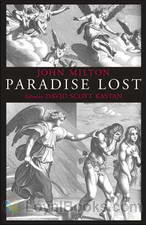 Paradise Lost
Paradise Lost
Magnificent in its scale and scope, this monumental poem by the blind poet John Milton was the first epic conceived in the English language. It describes an omniscient, all powerful God, the Fall of Man, the Temptation in the Garden of Eden, the disgraced angel who later becomes known as Satan, the Angelic Wars fought by Archangels Michael and Raphael and the Son of God who is the real hero of this saga. The poet John Milton was more than sixty years old when he embarked on this immense work of literary creation... | |
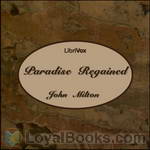 Paradise Regained
Paradise Regained
Paradise Regained is a poem by the 17th century English poet John Milton, published in 1671. It is connected by name to his earlier and more famous epic poem Paradise Lost, with which it shares similar theological themes. Based on the Gospel of Luke’s version of the Temptation of Christ, Paradise Regained is more thoughtful in writing style, and thrives upon the imagery of Jesus’ perfection in contrast to the shame of Satan. | |
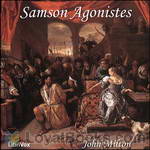 Samson Agonistes
Samson Agonistes
“The Sun to me is darkAnd silent as the Moon,When she deserts the nightHid in her vacant interlunar cave.”Milton composes his last extended work as a tragedy according to the classical Unities of Time, Place and Action. Nevertheless it “never was intended for the stage” and is here declaimed by a single reader.Samson the blinded captive, in company with the Chorus of friends and countrymen, receives his visitors on their varying missions and through them his violent story is vividly recalled... | |
 Milton's Comus
Milton's Comus
| |
 L'Allegro, Il Penseroso, Comus, and Lycidas
L'Allegro, Il Penseroso, Comus, and Lycidas
| |
By: Johann Wolfgang von Goethe (1749-1832) | |
|---|---|
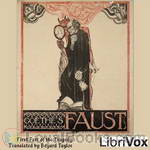 Faust, Part 1
Faust, Part 1
Faust is the protagonist of a classic German legend; a highly successful scholar, but also dissatisfied with his life, and so makes a deal with the devil, exchanging his soul for unlimited knowledge and worldly pleasures.Johann Wolfgang von Goethe's Faust is a tragic play in two parts. It is Goethe's most famous work and considered by many to be one of the greatest works of German literature.This first part of Faust is not divided into acts, but is structured as a sequence of scenes in a variety of settings. After a dedicatory poem and a prelude in the theatre, the actual plot begins with a prologue in Heaven and Scene 1 in Faust's study. | |
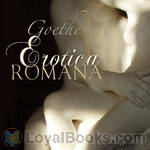 Erotica Romana
Erotica Romana
Also known as the "Roman Elegies," Erotica Romana is von Goethe's literary tribute to human sexuality and eroticism. Written in 24 elegies to emulate classical Roman elegy writers such as Tibullus, Propertius, and Catullus, von Goethe creates a lyrical work of art that has often been subject to censorship. | |
 Faust — Part 1
Faust — Part 1
| |
 May Song
May Song
Johann Wolfgang von Goethe was a German writer and statesman. His body of work includes epic and lyric poetry written in a variety of metres and styles; prose and verse dramas; memoirs; an autobiography; literary and aesthetic criticism; treatises on botany, anatomy, and colour; and four novels. In addition, numerous literary and scientific fragments, more than 10,000 letters, and nearly 3,000 drawings by him are extant. | |
 Faust; a Tragedy, Translated from the German of Goethe
Faust; a Tragedy, Translated from the German of Goethe
| |
By: Emily Dickinson | |
|---|---|
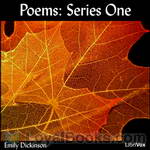 Poems: Series One
Poems: Series One
Renowned poet Emily Dickinson (1830 – 1886) wrote many many poems. This collection, “Poems: Series One”, presents the first installment of the complete poetic works of Miss Emily Dickinson. It is broken into four parts: Life, Love, Nature, and Time and Eternity. The verses of Emily Dickinson belong emphatically to what Emerson long since called “the Poetry of the Portfolio,”–something produced absolutely without the thought of publication, and solely by way of expression of the writer’s own mind. The poetry found here is then entirely honest, and indicative of the authors true feelings. | |
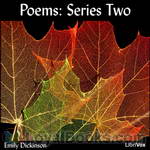 Poems: Series Two
Poems: Series Two
"The eagerness with which the first volume of Emily Dickinson's poems has been read shows very clearly that all our alleged modern artificiality does not prevent a prompt appreciation of the qualities of directness and simplicity in approaching the greatest themes,—life and love and death. That "irresistible needle-touch," as one of her best critics has called it, piercing at once the very core of a thought, has found a response as wide and sympathetic as it has been unexpected even to those who knew best her compelling power. This second volume, while open to the same criticism as to form with its predecessor, shows also the same shining beauties." | |
 Poems by Emily Dickinson, Third Series
Poems by Emily Dickinson, Third Series
| |
By: Andrew Lang (1844-1912) | |
|---|---|
 Ban and Arriere Ban
Ban and Arriere Ban
| |